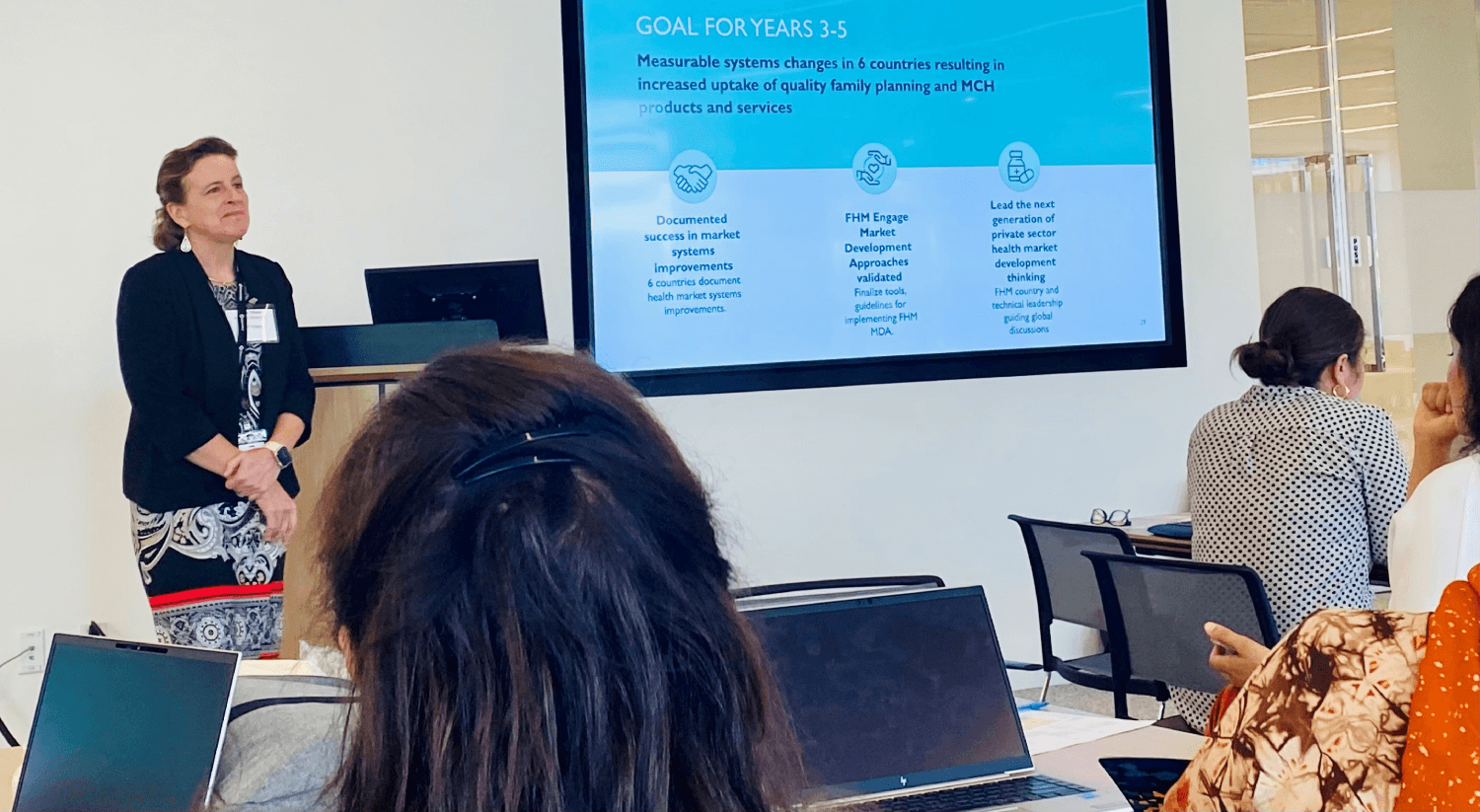
Meet FHM Engage Project Director Dana Tilson

What is your professional background and what drew you to working with private sector health markets?
I have a master’s degree in public health, and 25 years of experience implementing health projects focusing on the private sector across the globe. I have a particular passion for sexual and reproductive health, and I believe private sector health care providers and private sector distribution channels play a critical role in health care service delivery in developing markets.
The Frontier Health Markets Engage project provides an amazing opportunity for Chemonics to increase both the supply and demand for family planning and maternal and child health services and products through the private sector.
The Frontier Health Markets Engage project is designed to leverage public-private partnerships. How does engaging the private sector aid in achieving better health outcomes?
The private sector in most low- and middle-income countries supplies half of all health services and products and, therefore, is a critical player in the health sector. Facilitating better coordination, regulation, quality, and demand for private health services and products can contribute significantly to achieving universal health coverage in the most cost-effective way possible. Increasing use of the private sector can save costs to the government by providing services to people who can pay for them, and it can increase availability of health services and products overall in countries.
From your experience, what are the biggest recommendations you can give for successful collaboration between the public and private sectors? How do you think that collaboration will impact health systems in the next years?
One of the innovative approaches that FHM Engage is implementing includes developing a ‘family planning marketplace’ to connect private sector providers, manufacturers, and solution providers with sources of financing, all of which is stewarded by the private sector in collaboration with the government. FHM is also improving government stewardship of areas such as quality of health services in private sector health facilities, analysis of policy and regulatory barriers to new products and advocacy for change, and improved use of data for planning and incentivizing the private sector to introduce new products and expand their services.
There is currently a big focus on localization among the development community. When engaging the private sector, how does FHM Engage ensure that local priorities are integrated and that relevant local actors have a seat at the table?
FHM Engage conducts an initial market assessment in a country that includes local stakeholder interviews to ensure that the priorities of the local actors in the market are included. After completing the market assessment, we conduct a stakeholder co-creation workshop to analyze the findings in the assessment and jointly develop the market intervention strategies together with the local private sector stakeholders. The local actors and local priorities are always at the center of the work that we do.
You have had an interesting career in global development. What got you interested in joining Chemonics and, more specifically, the FHM Engage program?
Chemonics is an influential and highly regarded organization in global health development, so it was a big draw for me to work for Chemonics. FHM Engage is USAID’s flagship private sector health market development project and has a fascinating cutting-edge mandate to develop private sector health markets across the globe. This project offers me the opportunity to apply the learnings and experience I have had over the last 25 years to make a difference in the lives of so many women and girls by bringing products and services to them that they would otherwise not have access to. For me, that is fulfilling.
This story was cross-posted from Chemonics International where the interview was originally entitled “Development Works Here with Dana Tilson”. Read Dana Tilson’s bio on the Chemonics International site here.
Recent Highlights
-
Written by :
-
Published on : 16-Nov-23
- Highlight Type : Blog
- Country : Global
- Project : FHM Engage
- Language : English

